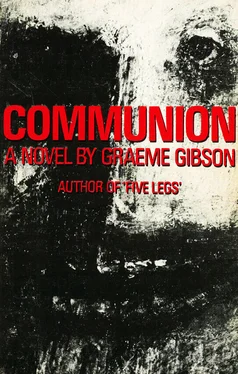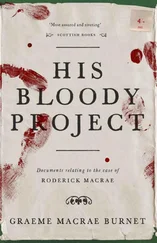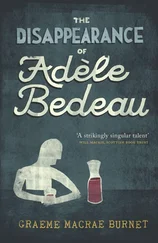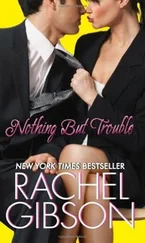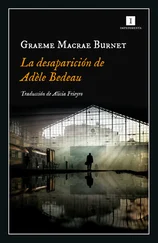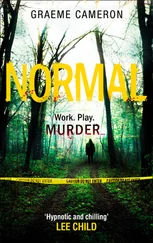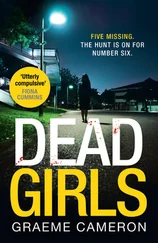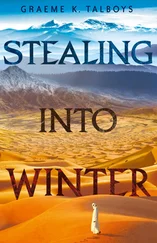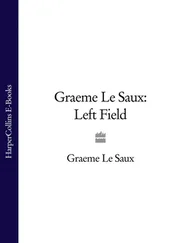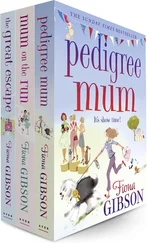Graeme Gibson - Communion
Здесь есть возможность читать онлайн «Graeme Gibson - Communion» весь текст электронной книги совершенно бесплатно (целиком полную версию без сокращений). В некоторых случаях можно слушать аудио, скачать через торрент в формате fb2 и присутствует краткое содержание. Город: Toronto, Год выпуска: 2012, ISBN: 2012, Издательство: House of Anansi Press Inc., Жанр: Современная проза, на английском языке. Описание произведения, (предисловие) а так же отзывы посетителей доступны на портале библиотеки ЛибКат.
- Название:Communion
- Автор:
- Издательство:House of Anansi Press Inc.
- Жанр:
- Год:2012
- Город:Toronto
- ISBN:978-1-77089-346-7
- Рейтинг книги:5 / 5. Голосов: 1
-
Избранное:Добавить в избранное
- Отзывы:
-
Ваша оценка:
- 100
- 1
- 2
- 3
- 4
- 5
Communion: краткое содержание, описание и аннотация
Предлагаем к чтению аннотацию, описание, краткое содержание или предисловие (зависит от того, что написал сам автор книги «Communion»). Если вы не нашли необходимую информацию о книге — напишите в комментариях, мы постараемся отыскать её.
The narration proceeds in haunting rhythms which make it mesmerizing reading. By the end, they rise to a harrowing and purgative intensity.
Communion — читать онлайн бесплатно полную книгу (весь текст) целиком
Ниже представлен текст книги, разбитый по страницам. Система сохранения места последней прочитанной страницы, позволяет с удобством читать онлайн бесплатно книгу «Communion», без необходимости каждый раз заново искать на чём Вы остановились. Поставьте закладку, и сможете в любой момент перейти на страницу, на которой закончили чтение.
Интервал:
Закладка:
He twists to enter the conduit at his feet: it’s an almost perfect circle; at the beginning he’d thought it was a pipe, but it isn’t, it’s made of brick. Because it’s narrow, he’s perfected a slithering crawl that transports him, efficiently enough, up the incline to where it widens at the foot of their garden. But it fatigues him. He lies on his belly listening to his heart. It’s remarkably dry and there are dead leaves on the floor of the tunnel. Catching his breath, he discovers that he’s grinning in the pitch black; the sound of his heart does not frighten him. The garage, the catalpa are above him somewhere and the house is straight ahead: from here it’s wide enough for him to scrabble on his hands and knees to the foundation, it’s easy.
Once inside the walls, however, he must be careful. He inches from the basement to the ground floor and peers through tiny holes into the kitchen. The light on the table, reflected in the window, glows in an empty room heavy with shadow: the counters have been wiped clean, a dish cloth hangs from the faucet, and although it’s clear they’ve finished with this room for the night, he waits briefly to be sure. He’s seen too much in here, he’s seen them together, and alone, he’s watched them, Urquhart and her man, their child, as they eat: some nights he’s watched the two of them drinking with friends until the kitchen table’s covered with bottles and the room is stale with smoke. Infrequently they sing. More often they listen to sentimental music and talk defensively of friends, of ugly marriages and failure: Urquhart usually retires first, but there was an evening when her husband went first and Urquhart was left with a man he hadn’t seen before, an intense and animated man who’d apparently returned from some distant place, it had been difficult to hear because of the music. Can he be sure it actually happened? it’s impossible to know. Urquhart and her lover leaning together from opposite sides of the table, she talking uncontrollably, he can’t hear what she’s saying, the man holding both her hands in his, occasionally he reaches, he brushes the hair from her face, and once, she imprisons his hand against her shoulder with her mouth.
He moves easily, without noise, between their walls, he’s accustomed to it now: he’s observed them night after night and sometimes, usually on weekends, he’s remained all day in the structure of the house, moving from room to room collecting the minutiae of their lives. They don’t know he exists, containing their bodies’ history like a mirror. He tries to understand, it’s as if he doesn’t exist.
The child is asleep in its room, he can barely discern its body stretched out beneath a blow-up of the Beatles. One night he saw Urquhart and her man give the child a toy, it looked like a model gas station, perhaps it was an ocean liner. The child was asleep and after the baby sitter left they woke it up because they couldn’t wait until morning. Whatever it was had batteries because miniature lights glowed magically in the dark room and the child threw its arms about their necks, he could hear the excited voice, he watched them standing intimately above the child as it stared in wonderment.

Fumbling beneath his coat to find his fly he hears it, he knows it’s the dog, he knows it’s been hurt, it’s gone mad, it’s been injured: his feet on the frozen road, he’s supporting himself with both hands, the sound of his feet, the wind, its body crushed and struggling, white bone in its side, kill it to stop the noise! he can hear it, broken, the snow is black, he doesn’t understand, the noise, he tries to turn away, he falls . . .
He’s driving back down along the road they entered. Snowbanks on either side, he accelerates beneath the sky. It was dead when he revived, beside him, nestled against him, he’d been dreaming, he remembers a valley full of lilacs in summer rain, mauve and purple at the bottom of an eroded hill, he descends with difficulty because it’s steep, yellow mud sticks to his boots: there’s a stream at the bottom, he arrives at the bottom, the smell of lilacs bursting on him, the long grasses bend down behind him in a path.

In front of the set, her legs tucked beneath her on the sofa, Urquhart’s sitting in the noise of laughter and applause. Her husband comes in from the bedroom with an empty glass in his hand. There’s music now from the television. She looks at him, he doesn’t respond, he goes into the kitchen. She buries her face in her hands. His voice, when he calls from the other room, is matter-of-fact: “Do you want a drink?”
“I . . . I don’t think so.” She hesitates, she springs to her feet and shuts the television off. When the husband, ice ringing in his glass, passes through again, she’s standing with her back against the white wall, splay-fingered hands pressed against it at her sides. In order to get where he’ll be able to see into the livingroom, bedroom and bathroom with a minimum of movement, he’ll have to creep within two inches of her, he’s never been this close; she’s still there, he’s hardly moving now, does he imagine it, or can he smell the delicate perfume of her body? there’s a sudden movement, it’s happening! her hands bang against the wall, he hears her speak, he stares in time to see her march into the bedroom. Afraid that he’ll miss something, he scuttles to the corner, along to the bathroom and around it, and then, with practised agility, into the bedroom wall. They’re standing together at the window; on the other side of the window it is night. They’re reflected in the glass. Urquhart is behind her man, her arms are around him, her body rests against his body. Is she crying? The man turns to her uncertainly. A train is crossing the bridge as she speaks: “I’m sorry.”
“So am I.” He touches her face with the tips of his fingers, he brushes her forehead, her cheekbones, he slides his hand to the back of her neck and pulls her close to him, she rests her face wearily in his throat. She disengages herself and sits on the bed, he returns to the window. He leans against a supporting beam and waits. The room is almost dark and they are unwilling to move.
She speaks his name, she says “I don’t know anymore. I’m overwhelmed with a sense of exhaustion.” She talks in the shadows. The words are unrelated to her voice. “It happens every time. Like at the party . . . I was really horny. I’d have gone with anybody, I mean it, man or woman, it couldn’t have mattered less . . . ” Still she doesn’t move; the man, does he hear her? he’s standing with his reflection. “Maybe fifteen people . . . all old friends except for a few of us, we were strangers, almost strangers. It’s weird.” Her hand moves to push back strands of her hair: the white face is strangely delicate. “All of us in this guy’s house and the basic emotion was hatred, you must have felt it, you knew too . . . There wasn’t any reason, it just happened. Like, it could have been, you know, friendship . . . nostalgia, but it was hatred.”
“I’ve never encountered a situation in my own life where I could have behaved differently, everything that has happened, or not happened to me, because of me, all of it has been inescapable.”
“Just a minute . . . No matter how we tried, it had to break out somewhere.” The man comes to stand beside the bed. He speaks inaudibly and still she’s unresponsive, he speaks again. Her voice is matter-of-fact: “I don’t know why I did it . . . when he said goodnight I hit him across the mouth with my hand . . . why would I do that? I didn’t know him, I hadn’t even spoken to him . . . ” The man crouches before her: their shadows blend without detail, their two bodies separate, automatically their voices overlap, he’s seen this before, he strains to hear what the man is saying but he cannot hear. Urquhart stretches to the lamp on the bedside table, she turns it on: she stares intently into his upturned face and her voice silences him. “Why am I always attracted to empty men?” He lowers his bearded face to her lap, his hands are moving beneath her skirt. A train is crossing the bridge. How long do they remain like this? his hands groping at her thighs, his voice muffled by her body and she watching them in the mirror, she almost shouts: “It’s not me you know, it’s not us!” Her dark mouth remains slightly parted as she waits, he can see her teeth. A yellow cat appears in the doorway to his left, it leaps onto the bed and as it curls about itself on the pillow it reveals swollen dugs. Urquhart stretches her head back, staring emptily at her reflection, she runs her fingers through her hair. “What in hell’s happening to you guys?” On his knees the man rocks back so that his buttocks rest on his heels, he stares into her face and takes his hands from her body. Peering through rough plaster, he watches Urquhart light a cigarette; she’s impatient, even angry: “Will you get up for Chrissakes!” She lurches to her feet and goes into the bathroom.
Читать дальшеИнтервал:
Закладка:
Похожие книги на «Communion»
Представляем Вашему вниманию похожие книги на «Communion» списком для выбора. Мы отобрали схожую по названию и смыслу литературу в надежде предоставить читателям больше вариантов отыскать новые, интересные, ещё непрочитанные произведения.
Обсуждение, отзывы о книге «Communion» и просто собственные мнения читателей. Оставьте ваши комментарии, напишите, что Вы думаете о произведении, его смысле или главных героях. Укажите что конкретно понравилось, а что нет, и почему Вы так считаете.
